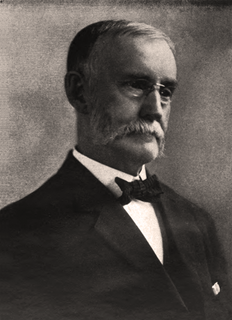A Quote by Barbara Deming
Manliness has been defined as assertion of the self. Womanliness has been defined as the nurturing of selves other than our own - even if we quite lose our own in the process. (Women are supposed to find in this loss their true fulfillment.) But every individual person is born both to assert herself or himself and to act out a sympathy for others trying to find themselves - in Christian terms, meant to love one's self as one loves others ... Jesus never taught that we should split up that commandment - assigning 'love yourself' to men, 'love others' to women. But society has tried to.
Quote Topics
Act
Assert
Assertion
Been
Born
Both
Christian
Commandment
Defined
Even
Every
Find
Fulfillment
Herself
Himself
His Loss
Individual
Jesus
Lose
Loss
Love
Love You
Love Yourself
Loves
Manliness
Meant
Men
Never
Nurturing
One Love
Other
Others
Our
Out
Own
Person
Process
Quite
Self
Selves
Should
Society
Split
Supposed
Sympathy
Taught
Terms
Than
Themselves
To Love
Tried
True
Trying
Up
Women
Women Are
Yourself
Related Quotes
Today our (Society of Jesus) prime educational objective must be to form men (and women) for others; men (and women) who will live not for themselves but for God and his Christ - for the God-man who lived and died for all the world; men (and women) who cannot even conceive of love of God which does not include love for the least of their neighbors; men (and women) completely convinced that love of God which does not issue in justice for others is a farce.
Only in love can I find you, my God. In love the gates of my soul spring open, allowing me to breathe a new air of freedom and forget my own petty self. In love my whole being streams forth out of the rigid confines of narrowness and anxious self-assertion, which make me a prisoner of my own poverty emptiness. In love all the powers of my soul flow out toward you, wanting never more to return, but to lose themselves completely in you, since by your love you are the inmost center of my heart, closer to me than I am to myself.
Perhaps the greatest mistake we can make, which causes loss of self-respect, is making the opinions of others more important than our own opinion of ourselves. You'll find no shortage of opinions directed at you. If you allow them to undermine your self-respect, you're seeking the respect of others over your own, and you're abdicating yourself.
As he loves us, he would have us love others. We say men are not worthy of such friendships. True, they are not. Neither are we worthy of Christ's wondrous love for us. But Christ loves us-not according to our worthiness-but according to the riches of his own loving heart! So should it be with our giving of friendship-not as the person deserves-but after the measure of our own character.
If we don't love ourselves, we would not love others. When someone tell you to love others first, and to love others more than ourselves; it is impossible. If you can't love yourselves, you can't love anybody else. Therefore we must gather up our great power so that we know in what ways we are good, what special abilities we have, what wisdom, what kind of talent we have, and how big our love is. When we can recognize our virtues, we can learn how to love others.
The question "Is this an act of self-love or is it an act of self-sabotage?" is
one you must consistently ask yourself if you are committed to having all
that you want and all that you deserve. When you love yourself you feel
worthy and deserving of claiming the gifts of this world. Self-love gives you
peace of mind and balance. Self-love gives you self-respect and the ability
to respect others. It gives you the confidence to stand up and ask for what
you want. Self-love is the main ingredient in a successful, fulfilled life.
One of the most effective ways to overcome anxiety is to try to shift the focus of attention away from self and toward others. When we succeed in this, we find that the scale of our own problems diminishes. This is not to say we should ignore our own needs altogether, but rather that we should try to remember others' needs alongside our own, no matter how pressing ours may be
Love is about bottomless empathy, born out of the heart’s revelation that another person is every bit as real as you are. And this is why love, as I understand it, is always specific. Trying to love all of humanity may be a worthy endeavor, but, in a funny way, it keeps the focus on the self, on the self’s own moral or spiritual well-being. Whereas, to love a specific person, and to identify with his or her struggles and joys as if they were your own, you have to surrender some of your self.
Some might say that looking inside of ourselves for spiritual truths is egocentric and selfish, and that egolessness and selflessness lie in working for others in the world. But until we find our inner truth, our work in the world will always revolve around our 'selves'. As long as we think about the world in terms of 'self' and 'others', our actions will be selfish. Our 'self' follows us wherever we go, so positive results will be limited.
Love is the only force that can erase the differences between people, that can heal relationships shattered by bitterness....I f the world is to be improved, the process of love must make a change in the hearts of men. It can do so when we look beyond self to give our love to God and others, and do so with all our heart, with all our soul, and with all our mind.
Women are taught that their main goal in life is to serve others--first men, and later, children. This prescription leads to enormous problems, for it is supposed to be carried out as if women did not have needs of their own, as if one could serve others without simultaneously attending to one's own interests and desires. Carried to its "perfection," it produces the martyr syndrome or the smothering wife and mother.



































